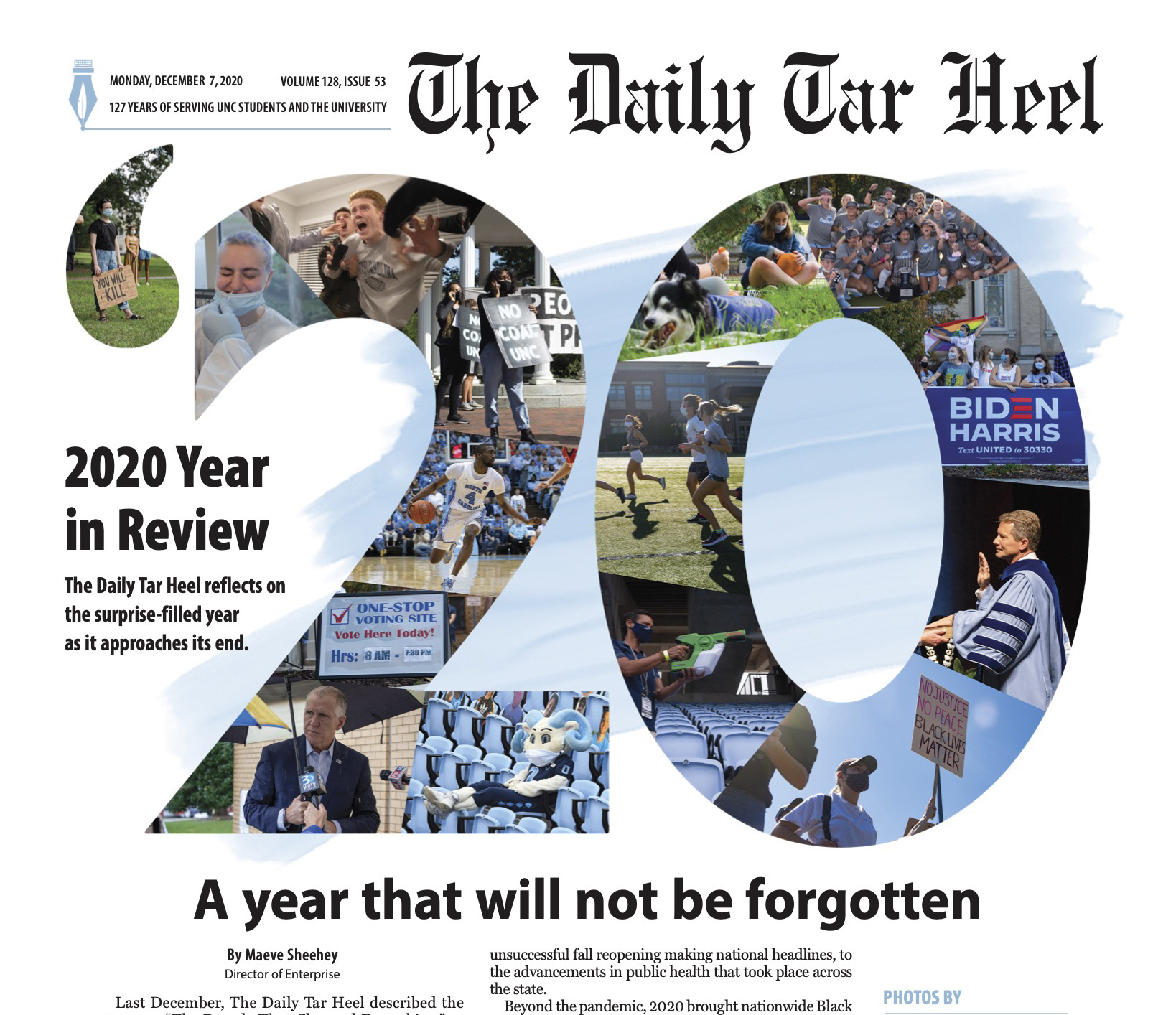- Membership
- Perks and Discounts
- Things To Do
- Resources
- News
- About
- Shop
Related Content
Fraternity Members Speak at Republican Convention
July 18, 2024
Seven fraternity members from UNC marched down the aisle July 17 at the Republican National...
Read MoreFraternity Members Invited to Republican Convention. Some Decline.
July 17, 2024
Some UNC fraternity members, thrust into the national spotlight after a photo of them holding...
Read MoreProgram Increases Suicide Prevention Efforts
July 16, 2024
A recently completed yearlong initiative to reduce suicide in North Carolina involved working with officials...
Read More-
2024
-
2023
-
2022
-
2021
-
2020
-
2019
-
2018
-
2017
-
2016
-
2015
-
2014
-
2013
-
2012
-
2011
-
2010
-
2009
-
2008
-
2007
-
2006
-
2005
-
2004
- Academics and Athletics
- Admissions
- Alumni Profiles
- Alumni Recognition
- Around Town
- Arts
- Books
- Campus Profile
- Campus Safety
- Carolina Alumni Awards
- Carolina Alumni Leadership
- Carolina Alumni Programs and Outreach
- Carolina Alumni Reunions
- Carolina Alumni Review
- Celebrations
- Championships
- College and Costs
- Commencement
- Coronavirus
- Discovery
- Extracurricular
- Faculty
- Faculty Awards
- For the People
- Go Heels
- Greek Life
- Hark the Sounds
- Higher Education
- Homecoming
- In Class
- In Memoriam
- Innovation and Technology
- Issues
- Object Lesson
- On View
- Our Treescape
- Philanthropy
- Podcast
- Public Service
- Race and Reckoning
- Research
- Sexual Assault
- Silent Sam
- Sports
- Structures
- Student Achievement
- Students
- Timelines
- Tuition and Financial Aid
- UNC Libraries
- UNC’s History
- Undergraduate Spotlight
- University Achievements
- University Awards
- University Budget Issues
- University Development
- University Leadership
- University News
- University Rankings
- What We Do
- Who We Are
- Young Alumni
- Yours at Carolina
DTH Cuts Print to One Day a Week
Posted on Jan. 20, 2021
The Daily Tar Heel sustained three printed newspapers a week during the first full semester of the COVID-19 pandemic, but it can no longer. The 128-year paper has moved to one printed edition per week.
Beginning today, the campus community can “find us in our blue boxes on campus and around Chapel Hill each Wednesday,” according to the paper’s announcement of the change, “and you can find us every day on our website, in your inbox and on social media.”
The DTH, which has turned to private donors for financial help four and a half years ago, says the pandemic has exacerbated its print advertising decline.
“Faced with another mostly virtual semester and a struggling local economy, we had to make a difficult choice as we prepared for the spring,” the paper’s announcement said.
The Wednesday print edition will be bigger, “with extra space for long-form features and in-depth news stories, beautiful visuals and sports and culture coverage to help you plan your week and get a deeper look at the news.”
The DTH’s print advertising revenue has been declining for 12 years.
In fall 2016, it cut print publication to four days a week, ending a print edition on Tuesdays, and began appealing to its audience for donations.
Many college newspapers have cut back their print editions in recent years, including papers at Duke, Columbia, Syracuse, Cornell, Arizona State and the universities of Maryland, Oregon, Pennsylvania, Wisconsin-Madison, South Carolina, Georgia, Oregon, California-Berkeley, Nebraska, Utah, Texas-Austin and Kansas.
© 2024 Carolina Alumni
